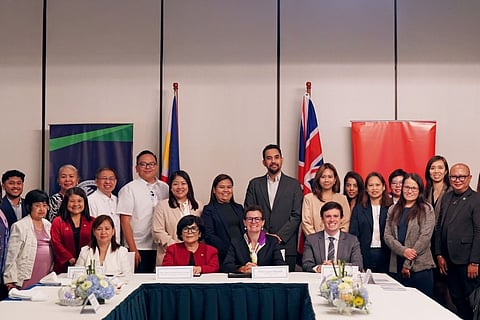
- NEWS
- the EDIT
- COMMENTARY
- BUSINESS
- LIFE
- SHOW
- ACTION
- GLOBAL GOALS
- SNAPS
- DYARYO TIRADA
- MORE

Climate summits can sometimes feel like a blur of polite nodding, grand speeches and the kind of carefully worded commitments that sound promising but rarely survive the transition from press release to reality.
But the 5th UK-PH Climate Change and Environment Dialogue? This one was different.
For starters, UK Ambassador Laure Beaufils and Environment Secretary Maria Antonia Yulo Loyzaga didn’t waste time on empty gestures.
Instead, they got straight to business: figuring out how the UK and the Philippines could actually move the needle on climate action, building on the wins of 2024 and setting a roadmap for even bigger results this year.
And while most international agreements like to focus on the big picture, the dialogue was refreshingly obsessed with details because climate change isn’t fought in conference rooms.
It’s fought in the rising waters along coastal towns, in farmlands struggling to cope with extreme weather, in the financial markets that still hesitate to bet big on renewables.
The UK is funding real solutions.
The dialogue highlighted how British support is helping make the Philippines’ National Adaptation Plan actually work, mobilize big money into renewable energy and fund biodiversity and coastal livelihood projects, launch game-changing initiatives on plastic pollution and blue carbon.
The UK and the Philippines agreed to set up a development partners coordination group, basically, a think tank with real financial backing, to make sure climate analytics are actually being used where they’re needed most: in provinces facing the highest climate risks.
They’ll be starting with Negros Occidental, using real-world climate data to build an investment platform that will attract private capital for smart agriculture, innovative water management and agroforestry.
Translation: climate adaptation needs to make business sense and this is how you make that happen.
Meanwhile, the UK’s Blue Planet Fund will be rolling out a new initiative in the Philippines: the COAST (Climate and Ocean Adaptation and Sustainable Transition) program.
The goal? Stronger marine protected areas, smarter fisheries management, and pushing blue carbon initiatives into the mainstream.
And because money talks, both sides also agreed to scale up climate and nature finance collaborations with a focus on getting more private capital into climate resilience.
Because at the end of the day, if the money isn’t flowing, the solutions won’t either.
The dialogue wrapped up with both countries signing a renewed partnership statement on climate and nature. More important, it set the tone for what’s coming next.
“I am very proud of the progress we have made together. But we won’t rest on our laurels. We are ambitious for the future,” Beaufils said.
